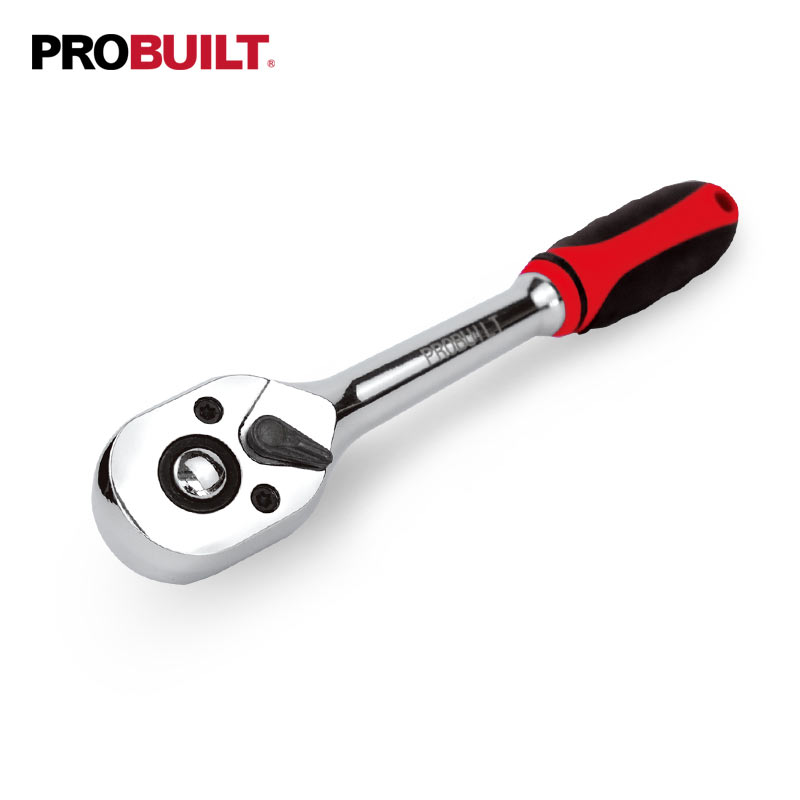+86 311 8533 5186
When it comes to turning bolts and nuts efficiently, two popular tools often come into play: the ratchet wrench and the socket wrench. These tools are staples in the world of mechanics, DIY enthusiasts, and professionals alike. However, they have distinct features and applications that set them apart. In this article, we will explore the differences between the ratchet wrench and the socket wrench.

Ratchet Wrench: A ratchet wrench, also known as a ratchet handle, features a handle with a ratcheting mechanism that allows continuous rotation in one direction while preventing backward motion. This mechanism eliminates the need to reposition the tool after each turn, making it ideal for repetitive tasks.
Socket Wrench: A socket wrench, on the other hand, consists of a handle and detachable sockets. It lacks the ratchet mechanism and requires manual repositioning after each turn. Socket wrenches are versatile due to their ability to accommodate various socket sizes.
Ratchet Wrench: Ratchet wrenches are renowned for their efficiency. The continuous ratcheting motion makes them perfect for tasks that involve multiple fasteners or bolts, as they minimize the time and effort required.
Socket Wrench: Socket wrenches offer versatility but may be less efficient for repetitive tasks. Users must manually rotate the handle back and forth, which can be time-consuming in certain situations.
Ratchet Wrench: Ratchet wrenches excel in confined spaces and situations where fasteners are close together. Their compact design and ratcheting mechanism make them suitable for tight spots.
Socket Wrench: Socket wrenches are versatile due to their ability to accommodate various socket sizes. This flexibility allows users to handle a wide range of fasteners with a single tool.
Ratchet Wrench: The ratcheting mechanism in a ratchet wrench allows for precise control when turning fasteners. Users can make incremental adjustments with ease.
Socket Wrench: Socket wrenches may require more careful handling when dealing with delicate or precisely torqued fasteners due to their manual repositioning.
Ratchet Wrench: Ratchet wrenches are commonly used in automotive repair, machinery maintenance, and construction, where speed and efficiency are crucial.
Socket Wrench: Socket wrenches are versatile and find applications in a wide range of industries, including plumbing, carpentry, and general home repairs.
Ratchet Wrench: Ratchet wrenches are typically more compact and portable, making them easy to carry to different job sites.
Socket Wrench: Socket wrenches may be bulkier due to the various sockets and handles, which can make them less convenient for on-the-go use.
In conclusion, the choice between a ratchet wrench and a socket wrench depends on the specific task at hand and individual preferences. Ratchet wrenches shine in scenarios that require speed and efficiency, while socket wrenches offer versatility and adaptability across various fastener sizes. Both tools have their rightful place in the toolkit of any handy individual or professional, each excelling in its unique way.

Copyright © Sinotools Industrial All Rights Reserved.. Technical Support: